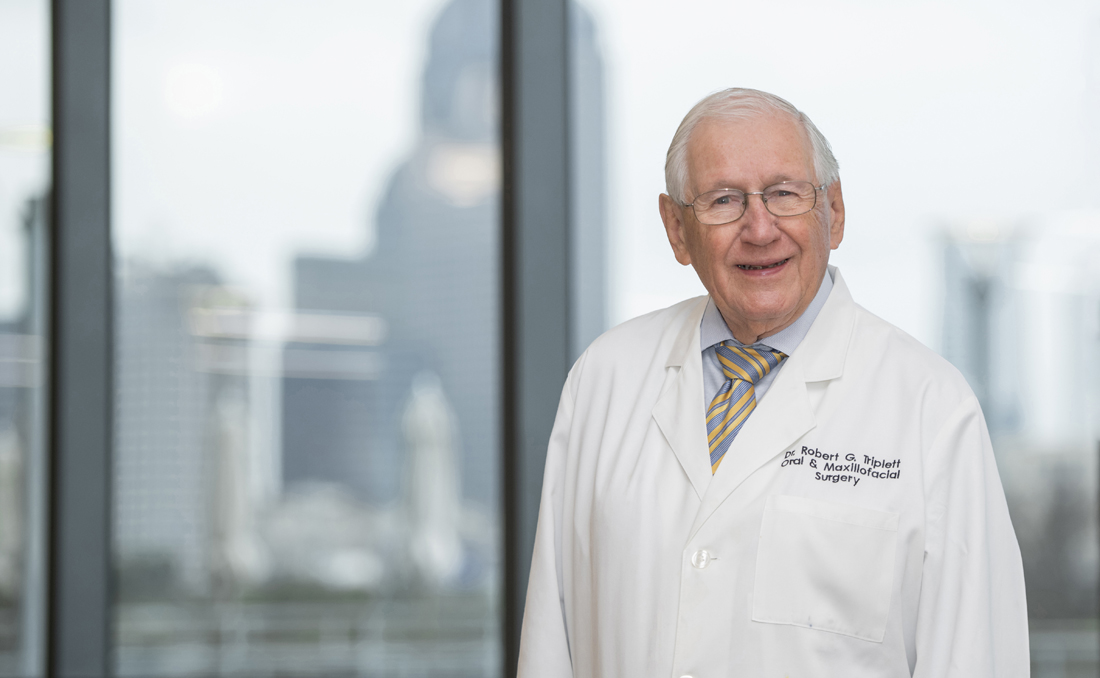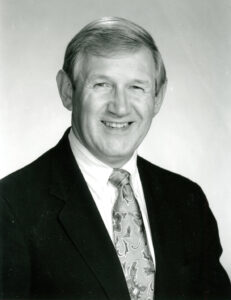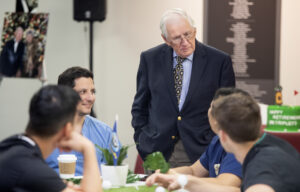Of innovation, leadership and persistence

When Dr. R. Gilbert “Gil” Triplett’s name surfaces, the term “first” is rarely far behind.
He was one of the first to participate in the first Branemark Implant course in the United States, one of the first to study clinical applications of genetically engineered bone growth factors, and one of the first to receive Regents Professor designation from The Texas A&M University System Board of Regents in 1998.
Texas A&M School of Dentistry’s Department of Oral and Maxillofacial Surgery is endeavoring for another first: Honoring this pioneer with the department’s first endowed chair, as Triplett is retiring on Aug. 19. When fundraising is complete, the chair will advance the legacy of this masterful oral surgeon.
“Dr. Triplett was extremely impactful in oral and maxillofacial surgery,” says Dr. Likith V. Reddy, clinical professor and department head. “Not only is Dr. Triplett a trailblazer in oral and maxillofacial surgery, but he’s also mentored and trained an untold number of oral surgeons who have gone on to practice across the country.”
“He is very forward thinking in impacting our specialty,” says Dr. Ted Fields, a 1992 dental alumnus who studied under Triplett at the School of Dentistry for nine years as an oral surgery resident and Ph.D. student in craniofacial biology. Triplett’s interest in bone biology research and connection to Swedish physician Dr. Per-Ingvar Branemark were pivotal to advancements in implantology, Fields says.

Triplett’s research with genetically engineered bone growth factors throughout the 1990s involved clinical sites around the country investigating the surgical uses of a protein called BMP2. The School of Dentistry was one of the four initial pilot sites for the research. The publication of the clinical trials ultimately received recognition as best scientific article of the year by the American Association of Oral and Maxillofacial Surgery. The efforts culminated with an arduous but successful journey to FDA approval, Triplett explains.
“The product (BMP2/Infuse) obviates a lot of bone harvesting from the hip and tibia,” Triplett says. “It is a strong growth factor that stimulates bone and soft tissue and is used frequently today. In fact, we are doing several cases tomorrow.”
Triplett chaired the college’s oral and maxillofacial surgery department for 16 years beginning in 1991, with an additional year as interim head from 2019 to 2020. He authored more than 100 peer-reviewed articles and served as chief of the oral and maxillofacial surgery division at Baylor University Medical Center and primary liaison between the hospital and the dental school from 1991 to 2020. All of this came after serving 21 years with the U.S. Navy Dental Corps. The American Association of Oral and Maxillofacial Surgeons bestowed Triplett with the Robert V. Walker Distinguished Service Award in October 2020.
The endowment will solely be used to support the OMS department’s teaching program, Triplett says. Other oral surgery programs in Texas have one or two endowed chairs already and, when funded, this endowment will keep the department competitive. Ian Wilson, director of development with the Texas A&M Foundation, says that they hope to have the chair fully established by next spring.
Fields says Triplett saw early the value of tailoring education to future oral surgery specialists with varying interests, such as the M.D. program the college implemented with Texas Tech Health Sciences Center and the Ph.D. program offered through the Department of Biomedical Sciences.

“He helped motivate the school to offer these kinds of diverse opportunities to attract a dynamic range of student interests,” says Fields, who was interested in research and looking into Ph.D. programs just as the School of Dentistry was starting its own in the early 1990s. “I knew that surgical training was strong here because of Dr. Triplett’s leadership. The Ph.D. program was fairly unique at the time, with only about three other programs in the U.S.”
The decision to study and train at the college was a “no-brainer,” Fields says. “Here I am interested in implantology, here I get to study with a mentor who also has a Ph.D. and interest in studying the systems surrounding implants, plus I love Dallas. That’s a home run if there’s ever a home run.
“Dr. Triplett is as nice as can be, and he has a great sense of humor. Having important help from mentors like him is what ambitious students need to have a chance at being successful.”